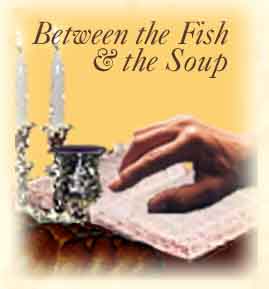

|
They will confess their sins and the sins of their fathers, for the treachery in which they have betrayed Me, and for having behaved towards me in a contrary manner. I too will behave towards them in a contrary manner, and I will bring them into the land of their enemies… perhaps then their unfeeling heart will be humbled, and they will gain appeasement for their sins… I will remember My covenant with Jacob… (26:40-2).
So concludes the Tochacha - the words of rebuke G-d communicated through Moses, regarding what would eventually happen to the Israelites on abandoning the Torah. However traditional Torah teaching - that Vidui (confession to G-d) is an essential element of Teshuva (repentance), does not seem to fit into these verses. For the first part of the above quotation states that G-d will continue to punish the Israelites, even after they have acknowledged their wrong-doings and confessed them to the Almighty. Why does G-d respond by intensifying their persecution instead of accepting their Teshuva? The Rambam rules that Teshuva involves three things: regret over past misdeeds, confession, and a sincere resolve not to repeat the sin. Vidui by itself is not sufficient. Pharaoh, for example, confessed during the plague of hail I have sinned to G-d, and I and my people are wicked (Exodus 9:27), but this did not stop him changing his mind once the punishment stopped: he did not let the Israelites go… This is the message of the verses under study. G-d accepts Teshuva - but only when it is genuine - to the extent that the resolve to improve will continue after the punishments cease. The Almighty wants His people to genuinely repent. His intensifying the persecution after the Vidui is His way of showing that He wants a genuine change of heart. It is perhaps for this reason that the Amida talks about Teshuva Sheleima - complete repentance, rather than just Teshuva. And when G-d sees that His People indeed come to that genuine humility and deep, sincere desire to repent even after the punishment stops, He will remember His Covenant with Jacob… This perhaps explains why the laws about voluntary contributions to the Temple are written after the Tochacha, and not in the earlier part of Leviticus which deals with the sacrifices. On this point, R. Samson Raphael Hirsch explains that those voluntary gifts are commendable, but they are not as essential as the performance of the commandments. No-one, writes Hirsch, should ever feel that voluntary contributions can atone for neglect of the mitzvot. However, it the light of the above discussion, it is possible to offer a different explanation. The Rambam writes that normally a person should be moderate in his habits and not go to extremes. But when correcting bad character traits, one should go to the opposite extreme (Hilchot Deot 2:2). And in this case when people return to G-d after having abandoned Him in the manner described in the Tochacha, they should go to greater lengths to come close to Him… which is represented in bringing voluntary, extra, donations to the Temple…
This article is provided as part of Shema Yisrael Torah Network For information on subscriptions, archives, and http://www.shemayisrael.co.il Jerusalem, Israel 972-2-641-8801 |